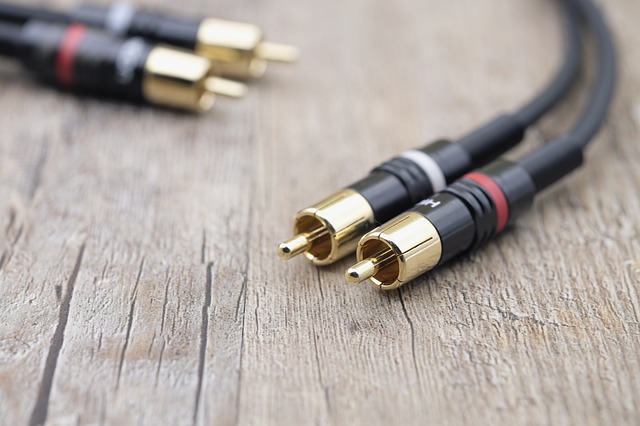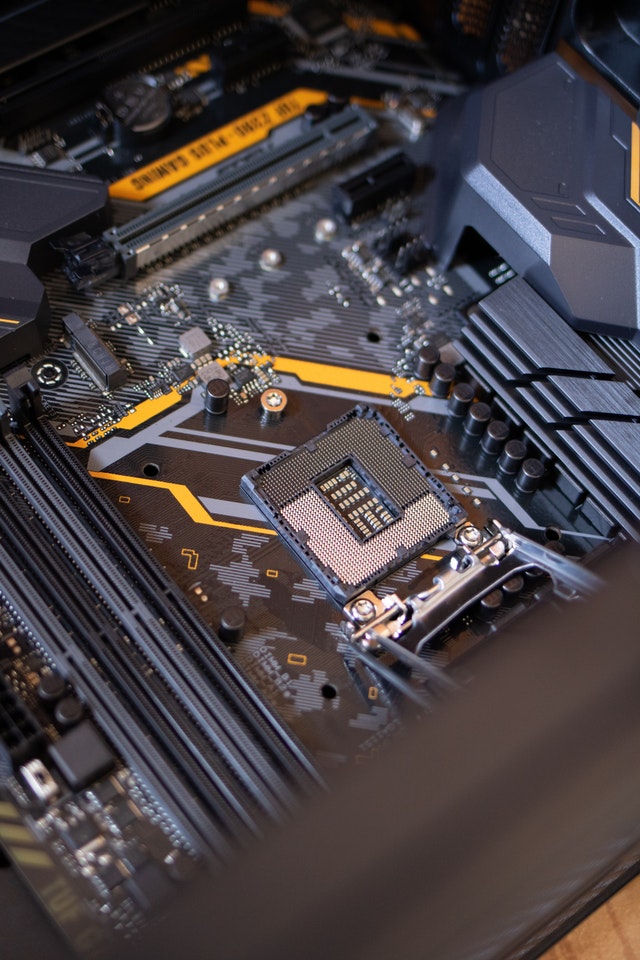Top & Best AMD processor Review 2022 – How to Select Ultimate Buyer’s Guide
AMD processor: How to choose the best in 2022?
Looking for an AMD processor? So you’ve arrived at the right place. In this complete Purchasing Guide we will clarify the main points and present the best models.
If you already understand a little more about the world of processors, you know that it is he who determines many characteristics of your machine. It is considered the brain of the computer, that is, one of the main components. Want to understand why? Follow us!
First, the most important
- The processor is nothing less than the brain of your machine. Its function is to transform data into information.
- The AMD processor is one of the highlights of the market, and competes directly with Intel.
- To choose a good processor you need to be aware of its technical characteristics.
You may also like:
- NAS: How to choose the best in 2022?
- Ultrabook: How to choose the best 2022 model?
- Motherboard: How to choose the best of 2022?
The best AMD processors: Our recommendations
The world of processors may even seem a little complex at first, choosing the right model can be quite a challenge. For this we made this selection of the best:
- The most complete processor of the brand
- Users’ preferred AMD processor
- The powerful model at an affordable price
Buying Guide
If you want a fast machine that offers high performance in all activities, especially in heavier programs or online games, you certainly need a powerful AMD processor.
To learn more about the characteristics of an AMD processor and know how to make the best choice, follow us in this complete Buying Guide.
What is the AMD processor?
Also known as the Central Processing Unit, that is, the famous CPU, the processor is considered the brain of the computer. That’s because he is responsible for receiving a certain volume of data and transforming it into information.
In practice, it is he who makes your machine faster and controls all the equipment’s devices, such as printer and monitor, for example. The processor tells all other components what to do. It is located on the motherboard.
The AMD processor is one of the highlights of the market, and competes directly with the famous Intel. The company was founded in 1969 in Silicon Valley.
OMGOfficial website information
“Today, AMD develops high-performance computing and visualization products to solve some of the world’s most interesting challenges.”
What are the advantages of investing in an AMD processor?
years. Some consider the AMD processor to be the best option for those who want a powerful machine to play games, edit videos or even work with design.
The brand is also noteworthy because it produces some processors with many cores, and this results in high power. AMD processors are still recognized for a great integrated graphics card.
In addition, AMD has exclusive technologies in its processors.
-
- AMD GuardMI : Designed to help customers address cybersecurity concerns;
- AMD StoreMI : Tool for PC users who want to improve load time, boot time, file management and system responsiveness;
- AMD Enduro ™ : Set of intelligent features that are designed to achieve significant energy savings;
- AMD Turbo Core : This technology can deliver more performance quickly when you need it.
There are many other technologies present in the brand’s processors. Each model or line has specific characteristics.
Another big advantage is that the AMD processor is usually cheaper than competitors with similar characteristics.
But like any product, the AMD processor also has its drawbacks. The main one is that AMD has higher power consumption. In addition, they also heat up easily and to resolve this it is necessary to invest in a good cooler.
Understand the terms: What can’t be missing in a good processor?
Within this universe of processors, there are some terms that you need to understand. Only then will you be able to analyze the technical characteristics of a model and define which is the most suitable for your need.
Do you know what cores, threads, cache and clock are? We will explain its functions and make these terms available to your understanding. Check out:
-
- Core: They are the ones who interpret the instructions and perform the actions of your computer. Logically, the more cores the AMD processor has, the greater its ability to perform individual cycles. This can result in a faster data processing speed. However, the cores themselves do nothing alone.
- Threads: They are the threads of the processor, that is, each thread corresponds to a task that the machine can perform. A single-threaded CPU has only one thread and can work on one action at a time. An AMD processor with more threads can operate several functions at the same time.
- Cache: Briefly, cache memory is responsible for storing data and thus facilitating access to it. This means that tasks can be performed more quickly. It is divided into three levels: L1 (internal memory and stores frequently used data), L2 (also stores frequently used data, but it is slower) and L3 (slower than the previous ones, but higher, which enhances the efficiency of the processor).
- Clock or frequency: Much is said about the other components, but it is the frequency that is really responsible for the speed of the processor. It is measured in Hertz and should never be evaluated alone.
None of this data is as important as all of them combined.
None of this data is as important as all of them combined. When considering an AMD processor, take into account all the terms mentioned. The higher the numbers, the better the machine’s performance. But it is useless to have a processor with 32 cores if the other components do not follow this data.
What are the different types of AMD processor?
The brand offers processors for desktop, notebooks and servers. Among the offers, there are a few different lines. For desktop computers and notebooks, the main ones are Ryzen, Athlon, A-Series and FX. For servers, AMD manufactures the Epyc and Opteron processors.
Each line is manufactured with a purpose in mind. Of course, within it, there are many models that are differentiated by the number of cores, memory, threads, among other characteristics. Below, check out a summary of the brand’s four main lines, focused on notebooks and desktops.
AMD or Intel processor?
Throughout this guide we brought a lot of information about the AMD processor, the focus of this article. However, when people search for this brand, it is normal to face the doubt: AMD or Intel?
We started this response by saying that it would not be fair to simply compare brands. You need to check what each model specifically can offer, and then compare it with the competitor’s compatible model.
Generally speaking, the AMD processor stands out for a few reasons: more affordable price, great integrated graphics card and models with a higher number of cores. So it ends up being the ideal option especially for gamers.
The Intel processor also has a number of advantages. It is more compatible with several motherboards, the company stands out when it comes to innovation and has more efficient models.
Take advantage of all the information contained in this guide and choose the best processor for your needs, especially considering its technical characteristics.
Purchasing Criteria: Determining factors for choosing your AMD processor
Did you like the information brought here? But wait, we still have other relevant data that you should consider before defining which AMD processor to choose. Check out:
- Purpose of use
- Cache Memory
- Cores
- Available budget
Check now in detail each of the mentioned criteria.
Purpose of use
First of all, reflect, for what purpose do you use your computer? Do you need your PC for basic tasks, use heavy programs or are you a gamer? All of these scenarios change the choice of your AMD processor.
AMD separates its processors into lines, each of which meets specific needs. Check this information in the comparative table about the different types of processor.
If you start by defining which brand line meets your needs, it’s easier to take the next step to check the technical characteristics.
Cache Memory
This is just one of the points that should be noted among the technical characteristics of the AMD processor. As already mentioned, no number should be considered alone.
L1 is the primary and generally has less capacity.
Cache memory is responsible for storing data and facilitating access to it. They are divided into L1, L2 and L3. L1 is the primary, and because it is more expensive, it usually has less capacity. L2 is the second search option and L3 the last.
These numbers can vary widely and your choice depends on your need for use. If your budget allows, prioritize cache memory above 8GB.
Cores
Remember we talked about the cores before? This data will always appear in the description of the AMD processor. It is important and must be analyzed in conjunction with the other characteristics. However, the more cores your processor has, the more efficient it tends to be.
AMD stands out for offering processors with up to 32 cores, which would be suitable for gamers and professional use. For basic or intermediate use, an AMD processor with up to 8 cores meets demand.
Available budget
Setting your budget can be a good search filter. On the market you can find AMD processors for every budget. It’s no use looking for processors in the $ 2,000 range if your budget isn’t even half that.
Try to find a good balance between your real need and what you can afford. Some specifications can only make the product more expensive and in fact make no difference in its use.




